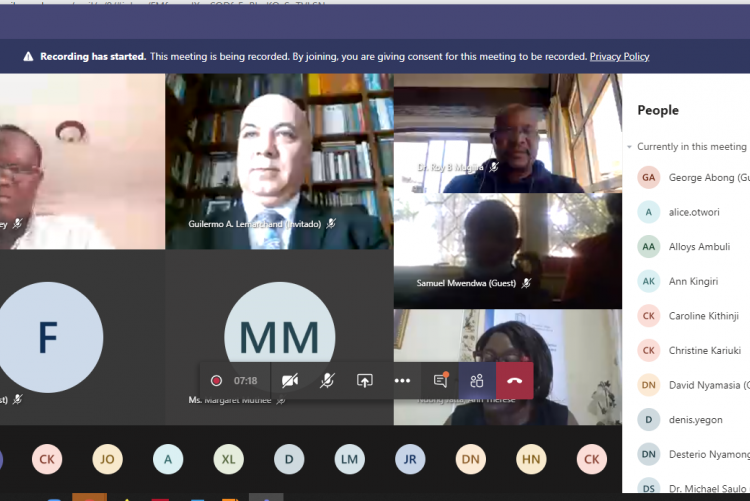THE UNESCO’s Global Observatory of Science, Technology and Innovation Policy Instruments
(GO-SPIN) programme designed to expose —through the rigorous application of an
assessment lens— usable insights about science, engineering, technology and innovation (SETI)
policies and their context launched a week-long training in Kenya that saw DFSNT faculty and students participate in this critical workshop. The purpose of this programme is to help UNESCO Member States to create local capacity for analysing SETI evidence-based policies in order to detect gaps and introduce reforms and upgrades to their national innovation systems and its governance.
It promotes building capacity to monitor and evaluate the policy performance, through a structural analysis (covering the explicit policy, the SETI national ecosystem, the legal framework and operational policy instruments), because such analysis points to implicit policies and gaps, and situates the performance of each individual national policy. In this way, the scope of standard SETI assessment can be widened, to consider country-specific contexts, as well as emerging knowledge of technological advances that contribute to sustainable development. While complementing efforts to promote evidence based SETI policymaking as well as efforts to evaluate policy performance, GO-SPIN offers a good baseline for the promotion of national scientific and technological foresight studies.
- Log in to post comments

